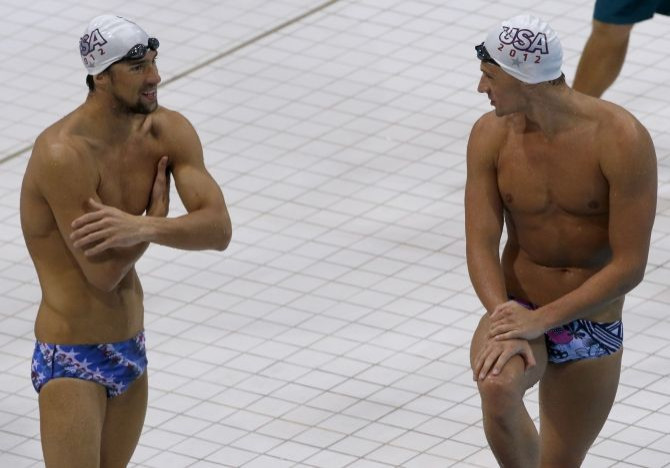Good News for Olympians: No Evidence That Sex Spoils Sport, May Actually Help Performance

Good news for Olympic athletes: there is not sufficient scientific evidence to support the long perpetuated theory that athletes should avoid sex before sport.
While the ancient Greeks believed that abstinence enhances physical performance and that sex before competition zaps energy and for years coaches and sports competitors have been practicing abstinence the night or even weeks before competition, scientists say that there has still been no scientific evidence to show that sex spoils sport.
Muhammad Ali, for one, reportedly went without sex for six weeks before a fight and English coach Glenn Hoddle forbade the players on his soccer team from having sex during the month-long 1998 World Cup.
However, scientists say that the long-standing "no sex before sport" myth has not really been fully proven, and that most research looking at the physiological effects has so far not been able to show that sex reduces physical strength, power or endurance.
"When we test people in the lab, we are examining 'tests of performance' but in competition, psychology very likely plays a much more important role," Professor Ian Shrier of McGill University in Canada said, according to Reuters. "Those who claim it decreases performance usually say it is because it decreases focus or aggression or tension. There are no studies that have examined this."
Researchers reviewed previous studies and the findings, published in the Clinical Journal of Sport Medicine, suggest that sex the night before competition has no effect on physiological test results.
In one of the studies researchers tested the maximum-effort grip strength of 14 married male former athletes the morning after coitus and after at least six days of abstinence and found that neither strength nor endurance of the flexing muscles appeared to be negatively affected by sex the previous night.
A follow-up study conducted by scientists at Colorado State University on ten healthy, married men between the ages of 18 and 45 found that grip strength, balance, lateral movement, reaction time, aerobic power, and VO2 max, a way to measure oxygen efficiency, did not seem to be affected by sex the previous night.
Another study found that having sex 12 hours before a fitness test did not seem to affect maximal aerobic power, oxygen pulse or blood pressure.
Researchers said that the ancient myth that athletes should practice abstinence may stem from the theory, which has yet to be scientifically proven, that sexual frustration makes people more aggressive, and that the act of ejaculation draws testosterone, a physical performance-related hormone, from the body.
"Even if that theory is correct, most people currently believe there is an optimal level of aggression or focus - too little and you don't do well, too much and you don't do well," Shrier said.
In fact, researcher Emmanuele Jannini, and professor of endocrinology at the University of L'Aquila in Italy, found that sex may even stimulate the production of testosterone.
He told the National Geographic that the current thinking that sex diminishes performance "is a really wrong idea."
"After three months without sex, which is not so uncommon for some athletes, testosterone dramatically drops to levels close to children's levels," Jannini said. "Do you think this may be useful for a boxer?"
Experts say that the effect of sex on physical performance would depend heavily on the person having sex, how often, the duration and in what way.
"If it's 'up all night swinging from the rafters' type sex we're talking about, then obviously the athlete is not going to be getting enough sleep or rest and their mind isn't on the job," Martin Milton, an expert in psychotherapeutic and counseling psychology at the University of Surrey, said, according to Reuters. "So that might well be more the issue than whether or not being involved in a short period of sex might be detrimental to someone's performance."



























